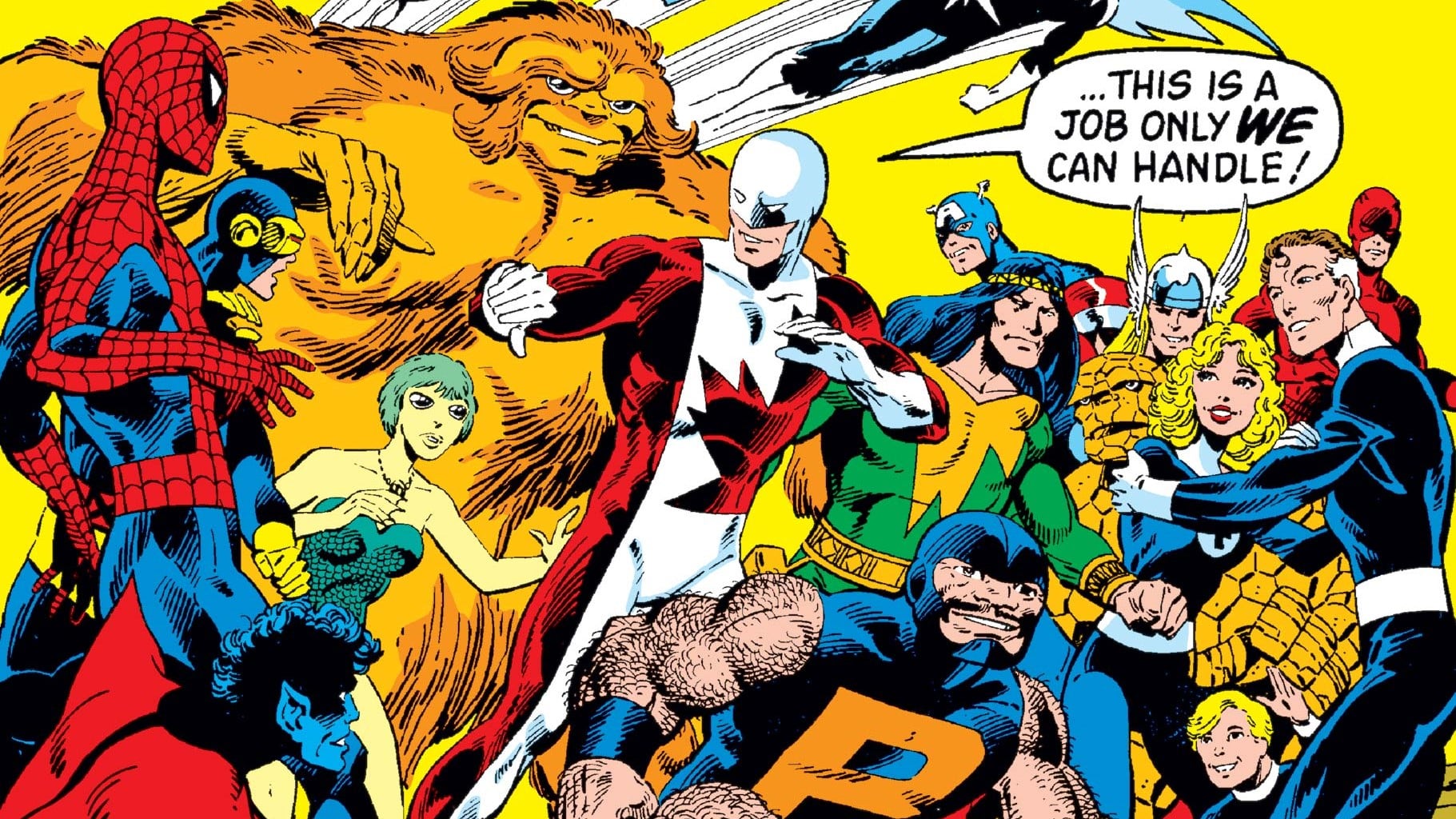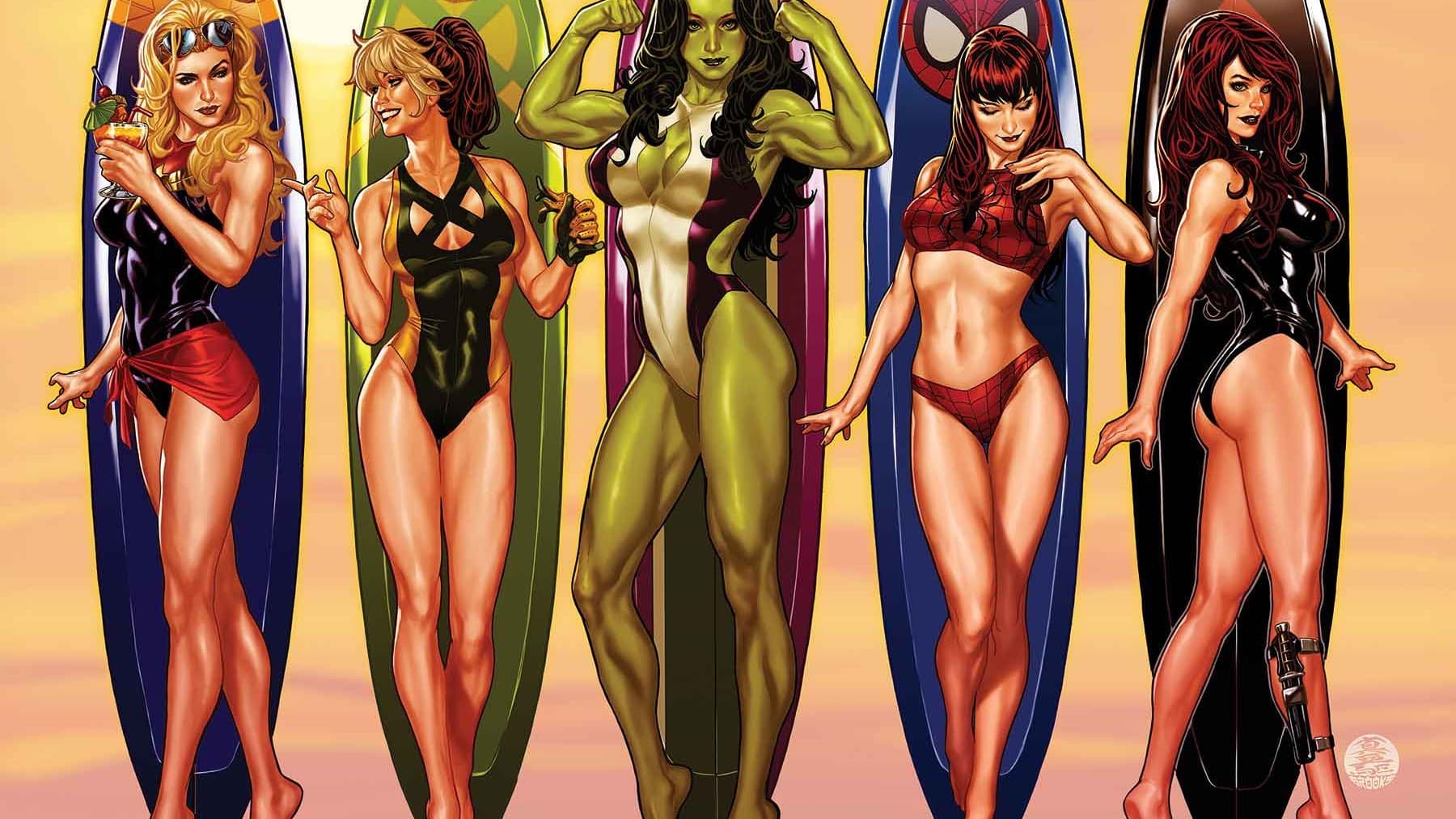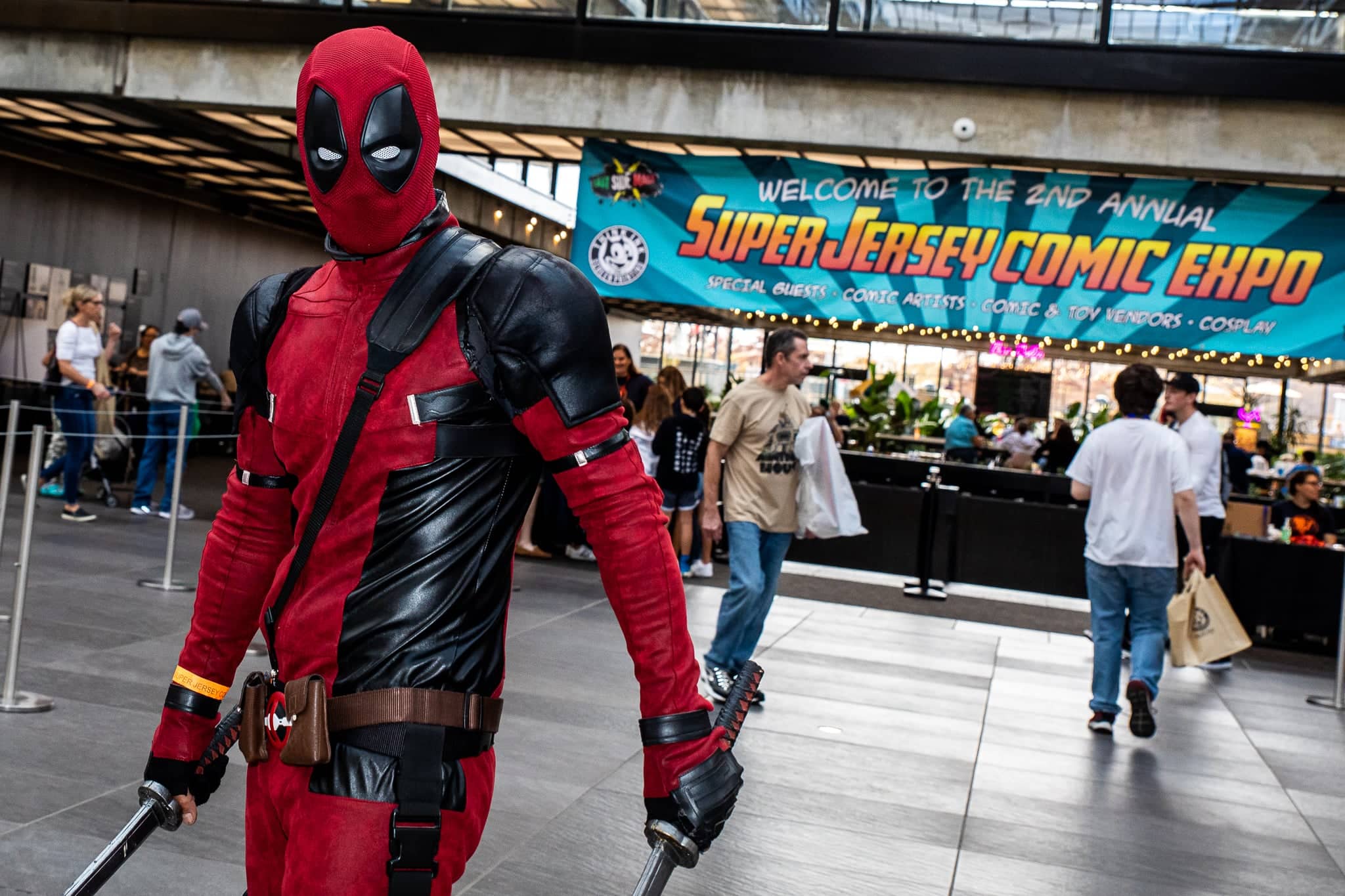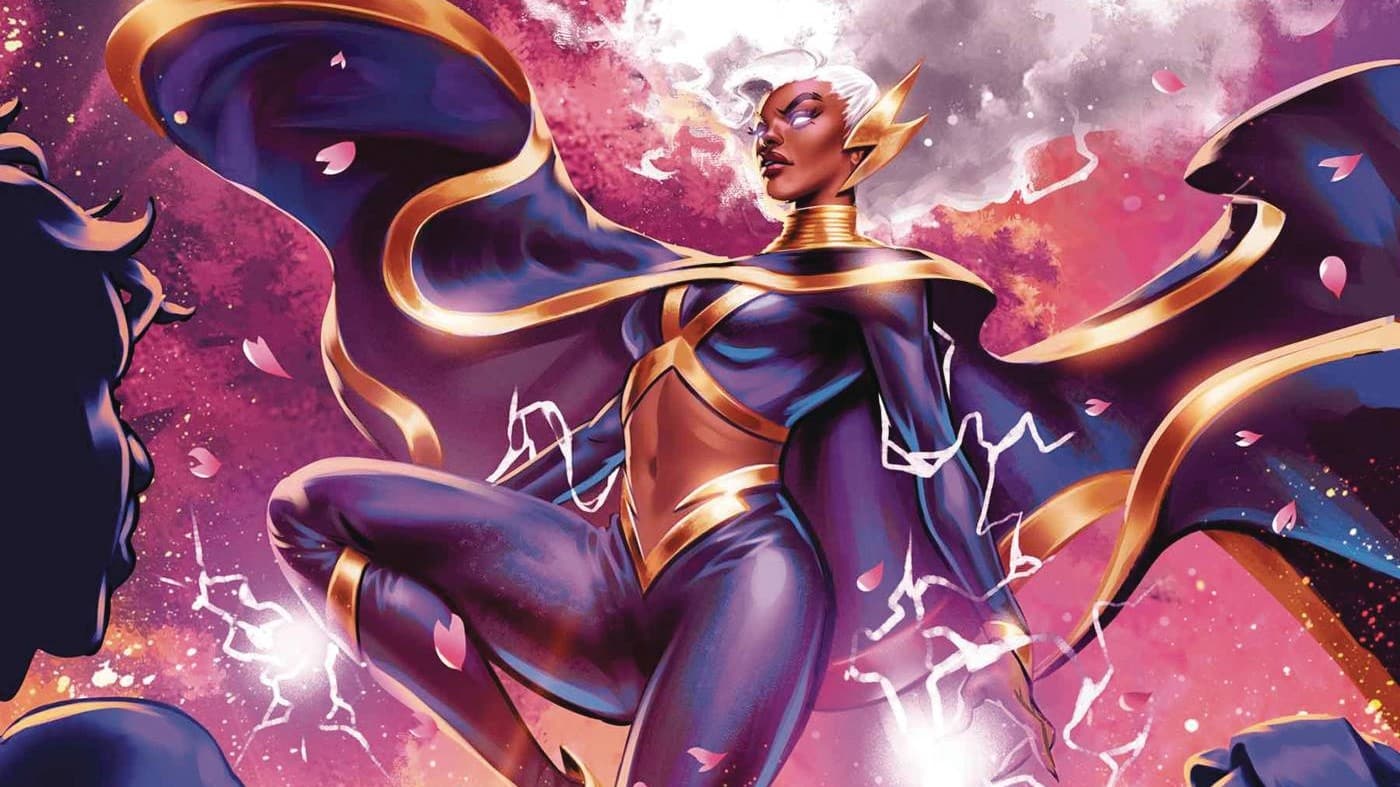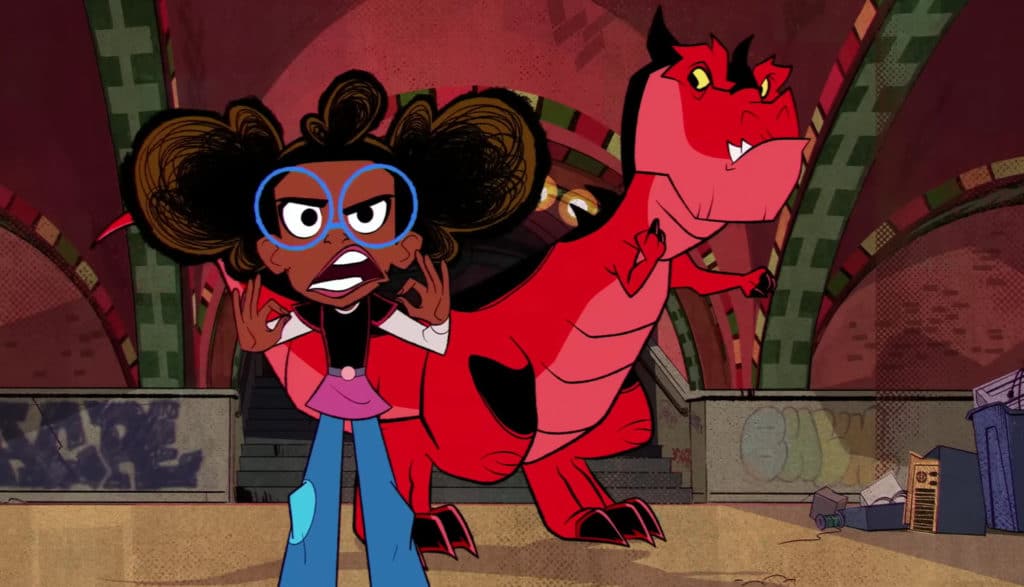I’m Canadian. But I’m not particularly patriotic. My ancestors from Ireland, Scotland and France weren’t rich or powerful but, by virtue of being white, undeniably benefited from the various government-sponsored genocides that made the nation of Canada. I’m ashamed of that and the perpetuation of myths about my nation’s history, like the idea that because we had the Underground Railroad we didn’t have slavery (we definitely did), or that, compared to our neighbors to the south, we were somehow nicer to the Indigenous peoples my forebears helped displace (we definitely weren’t).
I also have deep ties to the United States. I grew up a 20-minute drive from the border, did a Ph.D. in American Literature and I’m dating an American. Like most Canadians, I also consume a lot of American pop culture. This includes superhero comic books published by Marvel where, more often than not, Canada is either exotically “other” or straight-up villainous. I’ve always found the exotically other dynamic pretty funny. You’d think the fact we’re right next door and America’s closest ally and largest trading partner would mean Americans might know a thing or two about Canada. But plenty of comics depicting Canada as a frozen wasteland exclusively populated by polar bears, wolves, Wendigos and the odd ramshackle speakeasy selling moonshine to angry lumberjacks suggests this isn’t the case. Canada’s recurring villainy is similarly funny, for some of the same reasons. While various Canadian governments have definitely sanctioned many villainous things, we’re also definitely best friends with the United States. Sure, we burned down the White House that one time, but that was 200 years ago. While Canadians typically remember that, most Americans don’t.
But it’s recently become harder to laugh away the idea of open hostilities between the bestie nation states that share the world’s longest undefended border. For weeks, President Donald Trump has been teasing major tariffs on Canadian goods, ostensibly to stop us from supplying the U.S. with less than 1% of its fentanyl. But in a series of statements and interviews, Trump has also been clear about the real reason for his trade war: He wants to make Canada “the 51st state.” Because both the government of Canada and the vast majority of Canadians are profoundly uninterested in such an arrangement, the president of the United States is effectively talking about annexing my country. For now, he’s using tariffs, hoping economic suffering will bend Canada to his will. But if that doesn’t work, would he use physical force? That’s a scary prospect, especially for Canada, whose military has an estimated 68,000 members compared with the 1.3 million members of the U.S. armed forces.
All of this has got me thinking (again) about the (mis)representation of Canada in Marvel comics, and whether there’s any wisdom to be gleaned from punch ’em ups where Canada is punchier than usual. Or maybe I’m just looking for a distraction from the dystopian detritus of our current reality. Either way, let’s look back at some iconic depictions of Canada in Marvel comics, focusing on portrayals of the political dynasty currently tasked with opposing Trump: Canadian Prime Minister Pierre Elliott Trudeau and his son, current PM Justin Trudeau.
Pierre Trudeau’s Misbegotten Country

In some Canadian provinces, particularly the more conservative-leaning prairie ones, longtime Canadian Prime Minister Pierre Trudeau remains a controversial figure. But he was also, during his 15 years as leader of Canada’s governing Liberal Party, one of our most popular PMs, and certainly one of the most influential. One of his signature pieces of legislation is the Canadian Charter of Rights and Freedoms, which is sort of like the U.S. Bill of Rights, except it was drafted in the 1980s instead of the 1780s and includes legal protections for gay folks, trans folks and women. Pierre’s notoriety is proven by, among other things, his appearance in Chris Claremont and John Byrne’s much-loved run on Uncanny X-Men, amid a storyline introducing the originally villainous Canadian superteam Alpha Flight.
The existence of Alpha Flight is first teased in 1978’s X-Men #109, in which their Canada flag-draped leader, James MacDonald Hudson, codename Weapon Alpha, is sent on a mission to retrieve Wolverine. As anyone who’s read Giant-Size X-Men #1 will recall, Wolverine joined the X-Men by defecting from his apparently stifling job with a fictional Canadian secret service, slashing his shocked superior’s tie with his claws while declaring his desire to “get out from under the red tape and the rigmarole.” The suggestion, introduced in Giant-Size X-Men, that Canada has a well-funded military with access to futuristic weaponry and genetically enhanced agents is revisited in X-Men #109, beginning with the reveal of a Canadian stealth jet capable of evading U.S. radar that’s piloted by shadowy figures wearing maple leaf-emblazoned helmets.
The depiction of Weapon Alpha’s subsequent attack is very good at making him seem like the worst guy ever. His target, the usually combative Wolverine, is enjoying a rare moment of tranquility, communing with a peacefully grazing deer in a sun-dappled forest. Byrne draws Weapon Alpha literally shattering this landscape, sending rocks and soil flying as he shouts taunts through gritted teeth, his square chest proudly displaying the Canadian flag as he towers, threateningly, over the momentarily cowering Wolverine. Later, one of Weapon Alpha’s errant energy blasts seriously injures Moira MacTaggert, a (then merely human) civilian, who had been enjoying a lakeside picnic with the other X-Men. In short, this comic depicts Canada as not only reckless and aggressive, but also dishonest and immoral, willing and able to clandestinely invade a foreign ally for the sake of forcing the return of a “human weapon” whose only known crime was attempting to resign his government commission.
Though he’s rebuffed in his original attempt to corral Wolverine, Weapon Alpha, now renamed Vindicator, reappears a year later, in 1979’s Uncanny X-Men #120 and 121, also by Claremont and Byrne. This story introduces the full Alpha Flight roster and includes the first on-panel appearance of the team’s commander-in-chief, Prime Minister Pierre Trudeau. In the opening pages of Uncanny #120, Trudeau is drawn holding court within an advanced computer control room, described as “the war room of the Canadian Ministry of Defense in Ottowa, Ontario, Canada.” I guess it doesn’t really matter, since mutants with adamantium claws don’t exist either, but for the record, no such ministry exists and also, that’s not how you spell the name of Canada’s national capital. Pierre and Vindicator are watching surveillance footage of the X-Men as the PM demands his national super-soldier retrieve Wolverine, using terms that specifically dehumanize both Wolverine and Vindicator as government property. Says Trudeau to Vindicator: “We spent a lot of money and resources developing and training him — not to mention your group as well — I will not see it thrown away.” In other words, both Vindicator and Wolverine are understood, at least by Pierre Trudeau, as the property of the Canadian government, making Wolverine’s return an issue of both sovereignty and asset management.

After declaring his absolute loyalty to the prime minister, Vindicator inserts a program card into the computer that summons the members of Alpha Flight. They are: Dr. Michael Twoyoungmen, aka Shaman, a “staff physician at the Sacree Reserve Hospital, outside Calgary, Alberta,” who possesses mystical powers; Cpl. Anne McKenzie, aka Snowbird, an “RCMP Records Officer, assigned to Yellowknife, Northwest Territories,” who is a half-human goddess of the North who can shapeshift into any of the Arctic animals; Dr. Walter Langkowski, aka Sasquatch, a “former all-pro linebacker turned professor of bio-physics at McGill University, Montreal,” who is capable of transforming himself at will into the superstrong Sasquatch; Jean-Paul Beaubier, aka Northstar, a mutant and Olympic ski champion capable of flight and superspeed; and Jean-Paul’s twin sister, Jeanne-Marie Beaubier, aka Aurora, a Catholic school teacher in “LaValle, Quebec” who shares her brother’s abilities.
Alpha Flight are very obviously and deliberately Canadian, featuring code names that incorporate Canadian geography, popular mythology and even popular music, Snowbird’s name being a reference to Canadian singer Anne Murray’s hit song. Both visually and through her powerset, Snowbird also bears a striking resemblance to the World War II-era Canadian superhero Nelvana of the Northern Lights. Scholar Neal Baker further observes that the members of Alpha Flight are “meant to emblematize Canada,” with “membership reflect[ing] both the demographic weight of Ontario and Quebec and the location of national leadership in Ottawa.”
While I’m always hesitant to say you gotta hand it to a guy who once equated trans folks to mentally ill pedophiles, to the extent anything about the original version of Alpha Flight feels authentically Canadian, we can probably chalk it up to the influence of John Byrne. Byrne was born in England but immigrated to Canada as a child, where he went to public school, high school and college before relocating to the U.S. In The X-Men Companion II (1982), Byrne claims he created early versions of Vindicator and Snowbird while attending the Alberta College of Art in Calgary, with Snowbird imagined as the “daughter” of Nelvana. Yet the version of Canada presented in Uncanny X-Men #120 is also objectively outlandish, inverting Canada’s (overstated but nonetheless relevant) identity as an international peacemaker by reimagining the nation as a warmonger. Whether this inversion signals willful or innocent ignorance, the effect is the same. The United States’ closest ally becomes exotically othered to make it more threatening, so that the American-based X-Men have good reasons to punch its national representatives.
The rest of Uncanny X-Men #120 and 121 continues to imagine Canada as violently protectionist, reckless and ultimately self-destructive. In this story, Alpha Flight’s tactics almost get both them and the X-Men killed and even threaten to tear the bedrock of Canada apart. In Uncanny #121, “Shoot-out at the Stampede,” the final confrontation between Alpha Flight and the X-Men takes place, as the title indicates, in the seasonally abandoned grounds of the Calgary Stampede. This setting emphasizes Canadian aggression by engaging in an interesting form of Canada/America confusion, using a popular, internationally recognized Canadian institution to configure Canada in a stereotypically American way, as a frontier nation of violent cowboys. Within the resulting climactic battle, Shaman loses control of the mystical snowstorm he’d conjured to bring down the X-Men’s plane, causing it to become a superpowered hurricane that, according to Storm, “if unchecked … may not blow itself out until next summer — if then.”
The battle ends when Storm, acting with typical superheroic selflessness, extricates herself from the fight. Rising into the heavens above the petty political squabble, she taxes herself to her limits taming the weather, actions which save her friends, her enemies and Canada itself. When Storm returns to the fray on the ground, successful though visibly weakened, Northstar promptly knocks her unconscious. An enraged Cyclops berates Northstar for his immoral betrayal by letting his hatred for Canada bubble to the surface: “You lousy little—! Storm risked her life to save your misbegotten country!”
To the extent this story has heroes and villains, Alpha Flight’s behavior clearly makes them the villains. But I’ve always been struck by the specific terms of their villainy. At one point, Storm asks Cyclops whether surrendering Wolverine to the Canadian government might be the right thing to do, since Canada’s claim on him may be legally justified. Cyclops’ answer invokes friendship as overriding all national, political and legal concerns: “I guess the bottom line, Storm, is that Wolverine is our friend.” This simple statement encapsulates the difference between the villainous, government-sponsored Alpha Flight and the heroic, vigilante X-Men. While Alpha Flight embodies a slavish commitment to institutions, law and order, the X-Men embody a righteous American individualism that exceeds, defies and corrects the wrong-headed policies of specific governments.
There’s a grain of truth to this distinction. While the U.S. Declaration of Independence famously describes America as founded on the principles of “life, liberty and the pursuit of happiness,” the British North America Act that established Canadian sovereignty describes the nation as founded on the principles of “peace, order and good government.” In other words, while the U.S. is (supposedly) all about personal freedom, Canada is (stereotypically) more invested in the saving graces of institutions. Several prominent Canadian political and cultural theorists have underscored this facet of Canadian identity. For instance, in his Literary History of Canada, originally published in 1965, celebrated literary theorist Northrop Frye claims that Canada is possessed by a “garrison mentality.” In its most basic terms, the garrison mentality thesis argues that Canada’s inhospitable landscape, combined with the destabilizing, warring influences of France, the United Kingdom and the United States, causes Canadians to be especially introspective and defensive. “A garrison,” says Frye, “is a closely knit and beleaguered society, and its moral and social values are unquestionable. In a perilous enterprise one does not discuss causes or motives: one is either a fighter or a deserter.” In her oft-cited book Survival: A Thematic Guide to Canadian Literature, originally published in 1972, Margaret Atwood similarly argues that Canadian identity is “based not on the … American version of ‘freedom’ in which man is supposedly free to shape his own destiny … but on a vision of order as inherent in the universe.”
The garrison mentality isn’t great. Putting too much trust in institutions can lead to things like the Canadian Indian residential school system, one of the most shameful things Canada has ever done, which was definitely not discussed in any of my Canadian history classes in public school or high school, or in the mandatory Canadian literature classes I took for my undergraduate degree, which did not include any books by Black or Indigenous authors. And yet, we’re also currently witnessing the costs of America’s deep distrust of institutions in favor of personal freedom. How do we square this circle? According to Marvel comics, we should look to Pierre Trudeau’s son, current Canadian PM Justin Trudeau.
Justin Trudeau Thinks You Fight Too Much

In their first solo series, originally written and drawn by Byrne, Alpha Flight become heroes. Interestingly, they do so specifically by distancing themselves from the Canadian government. In 1983’s Alpha Fight #1, Pierre Trudeau says the government is out of money to pay the team, so from now on, they’re on their own. Over the years, Alpha Fight have sometimes slipped back into villainy (that time they tried to violently repatriate Squid Boy comes to mind). But whether they’re heroes or villains, and regardless of whether they’re actively funded by the Canadian government, as a superhero team founded by the Canadian government, Alpha Flight is always in conversation with Canadian identity. That conversation isn’t always intentional. But sometimes, it is. The story “Alpha Flight” from 2016’s Civil War II: Choosing Sides #5, by the all-Canadian team of writer Chip Zdarsky and artist Ramón Pérez, is an example of the latter. Compared to Alpha Flight’s original appearances, this story offers a very different version of the Canadian superteam, as well as a very different Trudeau and a very different perspective on the value of institutions.
For context: In 2016’s Captain Marvel #1, Carol Danvers takes charge of the Alpha Flight Low-Orbit Space Station, an outpost responsible for monitoring and combating extraterrestrial threats in cooperation with diplomats and spy agencies from Earth as well as various alien worlds and galactic empires. In theory, this status quo offers Alpha Flight newfound prominence. It also aligns Alpha Flight, and by extension Canada, with a character who is, historically, Marvel’s most self-consciously feminist superhero. Associating Alpha Flight with marginalized groups — namely, aliens and feminists — operating on the geographical fringes of the Marvel Universe maintains the team’s otherness. However, there’s an important shift in the depiction of Canada’s stereotypical commitment to law and order. In this storyline, commitment to bureaucratic oversight is bound up in commitment to social justice and socially progressive causes.
This change probably has something to do with the 2015 election of Justin Trudeau. I was there, and can tell you — 10 years ago, a lot of people were really excited about Justin. The victory of his Liberal Party over an increasingly racist and xenophobic Conservative Party that had been in power for 11 years was Canada’s Obama moment. Justin promised a reckoning with Canada’s treatment of Indigenous peoples and proudly declared himself a feminist. When he was asked why he prioritized gender parity in his cabinet, he smirked and said, “because it’s 2015.” At the time, I was one of many women who swooned. Meanwhile, in the U.S.: Justin Trudeau didn’t create contemporary American perceptions of Canada as a liberal oasis. Since at least the 1990s, this has become a frequently reiterated stereotype, underpinning every liberal American’s threat to “move to Canada” if the Republicans win again or do whatever dastardly thing they’re currently threatening to do. But Justin’s rise to power, especially juxtaposed with the 2016 election of Donald Trump, helped solidify these perceptions. During his first years in office, Justin received glowing reviews from America’s liberal-leaning news and entertainment media. Profiles often highlighted his support for progressive causes that Trump and other Republican lawmakers were eagerly vilifying, such as women’s rights, environmentalism and multiculturalism.
However, 2016’s sunnier, post-Justin iteration of Alpha Flight doesn’t completely erase the team’s history as violently protectionist bullies. Within the context of the Civil War II event, Alpha Flight sides with Captain Marvel’s efforts to use a young Inhuman’s precognitive abilities to stop crises before they happen, arresting and detaining individuals for intent rather than action. Throughout the event, Iron Man, Captain Marvel’s main critic, repeatedly emphasizes that this system of preemptive justice risks sacrificing individual liberty for the sake of national — or planetary — security. In essence, Captain Marvel’s stance is criticized as overly protectionist in ways that threaten foundational American values. In other words, she’s criticized for promoting a garrison mentality.
And yet, while I happen to feel Civil War II isn’t a very good showcase for anything that makes Carol Danvers remotely likeable, the story does try to frame her position as understandable, if not morally correct. The event explores both the risks and benefits of a rigorous national — or planetary — security apparatus, as highlighted by the contrast between the supposedly selfless rationalism of the feminist Captain Marvel and the dangerously selfish emotionalism of the famously chauvinistic Iron Man. By the end of the event, both sides are forced to display their flaws, with only one man rising above the fray — none other than Justin Trudeau.
In the opening pages of Zdarsky and Pérez’s story from Choosing Sides #5, Alpha Flight don’t meet their prime minister in a futuristic secret control room, but rather a very mundane office. And unlike Vindicator being debriefed by Justin’s dad, Alpha Flight members Aurora, Sasquatch and Puck don’t stand at attention, but rather lean on the furniture and put their feet up, like troubled teens rapping with a hip, young principal. Within this rap session, Justin tells Alpha Flight that while he personally disapproves of Carol Danvers’ preemptive justice, he doesn’t condemn Alpha Flight for siding with her. Instead, quite unlike the ’70s storyline where his father demands absolute fealty, Justin urges the members of Alpha Flight to trust and follow their consciences. Later, in a reference to Justin’s notorious charity boxing match against Conservative senator Patrick Brazeau, the PM dons a tank top adorned with a nationalistic maple leaf to engage in a tense yet friendly — and ultimately victorious — boxing match with Carol’s then-antagonist Tony Stark. Here, Justin plays both sides by similarly critiquing Tony’s methods. This dual disapproval situates Justin beyond — or perhaps above — the American superheroes’ Manichean conflict.
In this story, Justin Trudeau’s superior physicality, his evident importance in the superhero community, and his patriotic boxing togs that reference both Alpha Flight’s original leader and the independent Canadian superhero Captain Canuck, transform him into a kind of superhero. Yet like Captain Canuck, and unlike the past and current versions of Alpha Flight, Justin is presented as a (relative) pacifist. As scholar Bart Beaty describes, a defining aspect of Captain Canuck’s nationalism “was the fact that he shunned violence as a means of effecting change or ending crises, and worked as a pacifist whenever possible.” This ideological connection to Captain Canuck, who helped inspire a rare patriotic fervor when he debuted in 1975, suggests that Zdarsky and Pérez’s version of Justin Trudeau is meant to speak to (and flatter) a popular (and heroic) version of Canadian liberalism. This is born out in Justin’s ability to take the moral high ground. Each time he punches Tony Stark, he adds a stereotypically Canadian “sorry.” And the moral of the story, spoken by Justin to Tony, is, “you all fight too much.” By which he means Carol and Tony but also — because this is a comic book called Civil War starring a progressive Canadian prime minister sparring with an American superhero — real-life political partisans.
To be fair, this self-satisfied smugness is fairly typical of Justin Trudeau. It’s also typical of (some) Canadians, particularly where the United States is concerned. Canadians often view the U.S. with a mix of fear and awe disguised by tut-tutting superiority. In this comic and in general, this moral high ground is, of course, bullshit. And to their credit, Zdarsky and Pérez kinda admit that. Justin delivers the moral after he sends Tony Stark to the mat. And saying sorry after you harm someone — like when Justin apologized for residential schools, then apologized for vacationing on the day of remembrance he created to honor the victims of residential schools — doesn’t erase or take actual responsibility for that harm.
Over the years, I’ve soured on Justin Trudeau. He hasn’t been as progressive as a lot of us wanted him to be, and he can’t remember how many times he’s done blackface. I’m not alone; Justin is currently so unpopular, he was forced to announce his resignation as prime minister, and will be stepping down as soon as his party elects a replacement. And an election is forthcoming, with the Conservative Party candidate, alt-right wannabe Pierre Pollievre, holding a commanding lead in the polls. Ironically, Trump’s tariffs might bolster the Liberal Party’s chances to defeat Pollievre’s Conservatives, since Canada’s feeling pretty anti-American right now and Pollievre’s been cozier with Trump.
So what does any of this have to do with Alpha Flight or Marvel comics or Trump’s bid to take over Canada? Maybe nothing, but maybe a lot. I’ve been a bit negative about Canada in this piece, but there are certain Canadian things I’m proud of, or at the very least grateful for. I’m glad we have universal health care, and abortion, and a public broadcasting network that’s not completely beholden to billionaires or advertising. I’m glad we have gay marriage, and some formally enshrined trans rights, and an official policy of multiculturalism. I’m glad Canadian universities are publicly funded, even though they’re always underfunded. And I’m glad our parliamentary democracy ensures our leaders aren’t superheroes, with the power to unilaterally start or end global conflicts or use a Sharpie signature to erase civil rights and words like diversity and feminism.
These are things worth fighting for, and they’re things I wish some Americans and presidents and comic books understood or cared about when talking about annexing my country or imagining my country attacking America. I also wish Americans and presidents and comic books interested in criticizing Canada would more consistently criticize us for the right reasons, instead of narcissistically remaking us to fit America’s preferred image of itself. At the end of the day, comics are comics, and the ongoing dissolution of American democracy is obviously more important than anything that happened in funnybooks 10 or 40 years ago. But how easy it’s historically been to convince Americans that Canada is whatever they want it to be continues to trouble me, and will probably keep troubling me for at least the next four years.
Sometimes, I wish life was less like superhero comics. Other times, I wish it was more like superhero comics. Our world deserves to be less dumb than the dumbest superhero comics. It also deserves to be at least as invested in justice as some of the better superhero comics. Similarly, while I still don’t want Justin Trudeau, or any Canadian prime minister, to be a superhero, I sometimes wish the real Justin was more like his comic book counterpart. Above, I criticized the smug simplicity of the Choosing Sides #5 moral. But the full line is better: “You all fight too much … with the wrong opponents.”

Anna Peppard
Anna is a Ph.D.-haver who writes and talks a lot about representations of gender and sexuality in pop culture, for academic books and journals and places like Shelfdust, The Middle Spaces and The Walrus. She’s the editor of the award-winning anthology Supersex: Sexuality, Fantasy, and the Superhero and co-hosted the podcasts Three Panel Contrast and Oh Gosh, Oh Golly, Oh Wow! Follow her @annapeppard.bsky.social.

